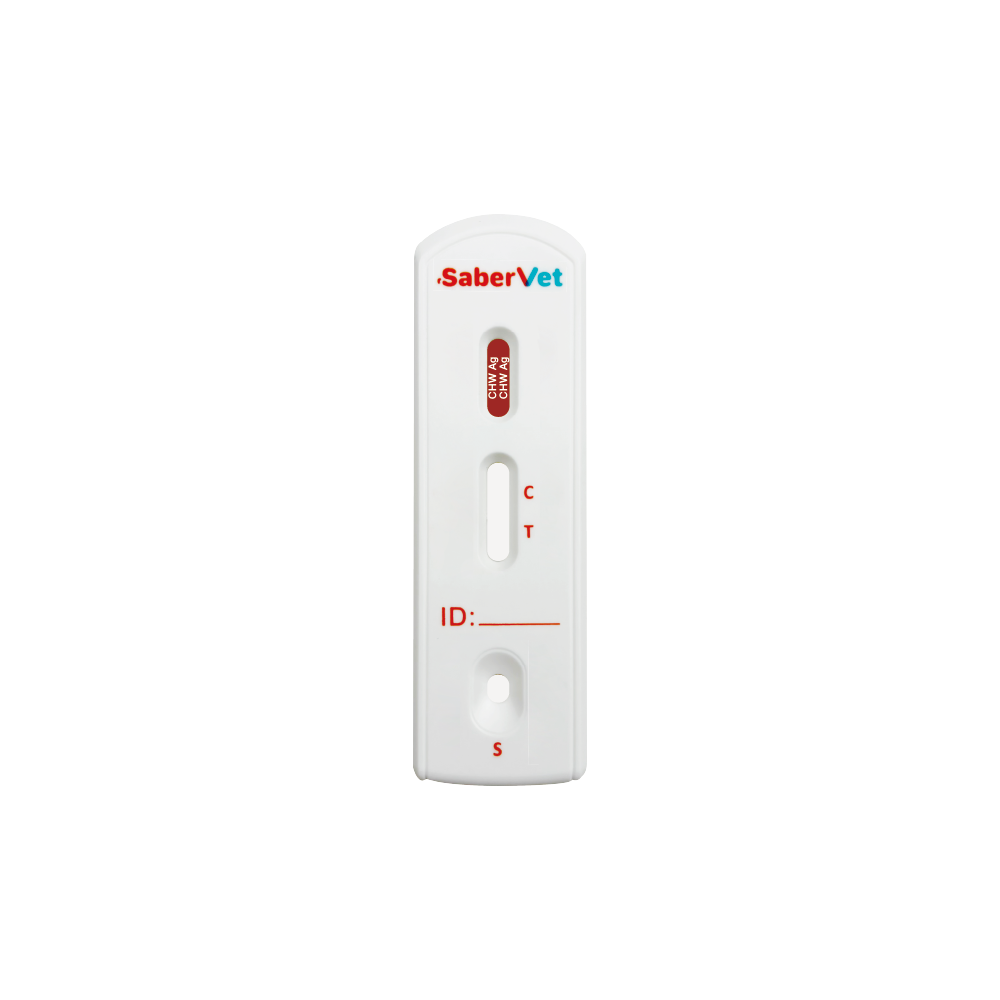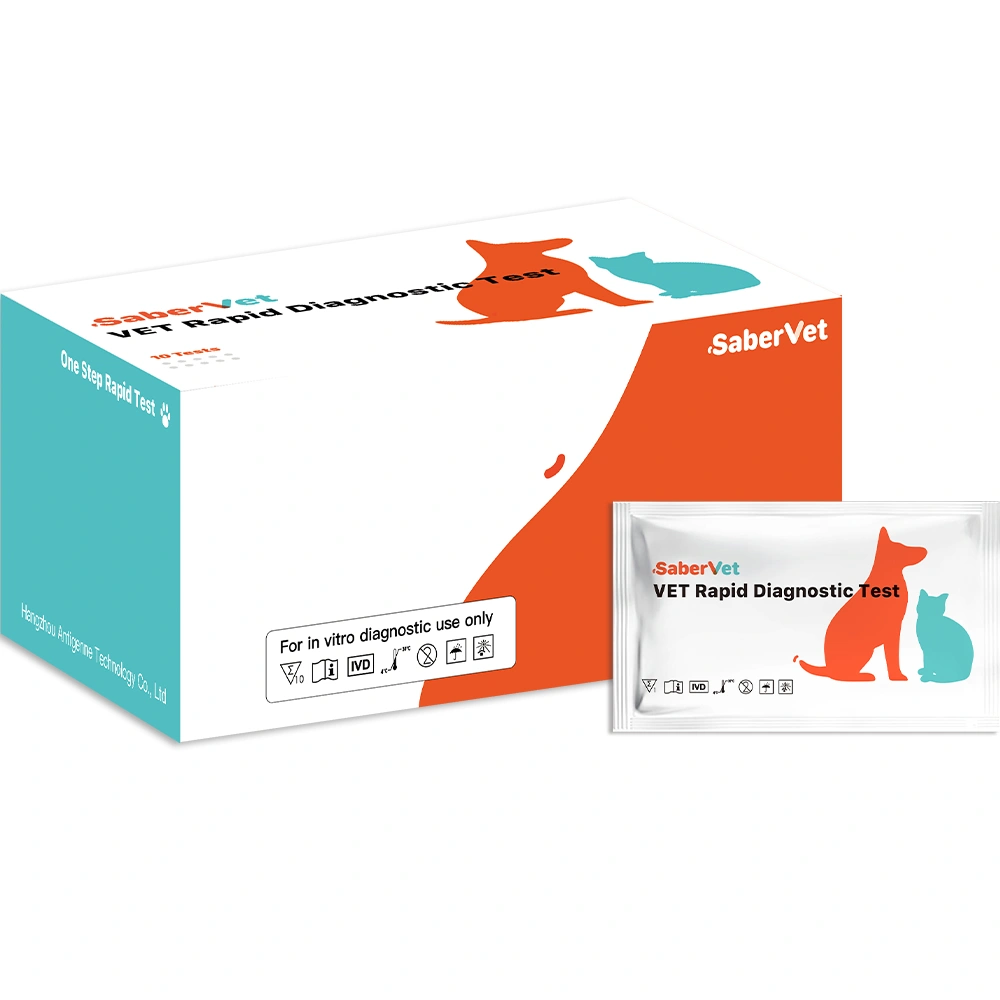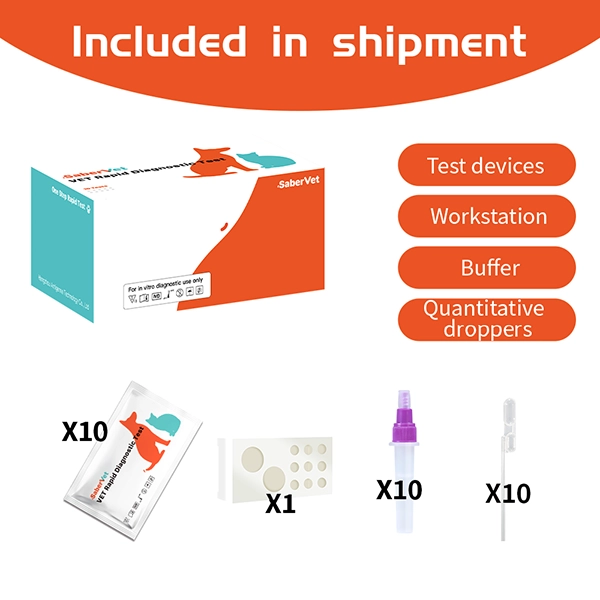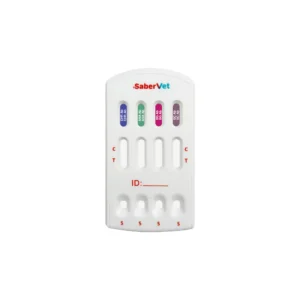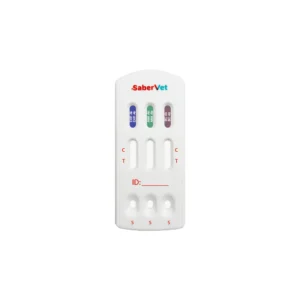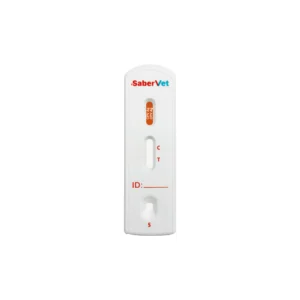Beschreibung
Canine Heartworm Disease, also known as Canine Evil Filariasis, is a human-canine disease. Canine heartworm disease is a blood parasite transmitted by mosquito bites and can infect dogs of all ages.
1. klinische Symptome
After infection, the main symptoms are circulatory disorders, respiratory difficulties and anemia. Initial symptoms are mild, occasional chronic cough, coughing intensifies when exercising, easy to fatigue, gradual weight loss. If not detected and treated in time, sick dogs have hyperpalpitations, weak and intermittent pulse, intracardiac murmur, hepatomegaly, and pain on palpation. Thoracic and abdominal fluid accumulation, generalized swelling, respiratory distress. In severe cases, pulmonogenic heart disease was very obvious. Secondary nephritis, cystitis and hematuria. Often there is vomiting, paralysis of the limbs, pleural effusion and ascites, and finally death from failure and pernicious anemia.
2.Übertragung
Canine heartworm disease is mainly transmitted through mosquito bites. After mosquitoes suck the blood of dogs infected with heartworm larvae, the larvae develop into infective juvenile filarial worms in the mosquitoes, and then spread by biting other dogs or humans again.
3.Clinical Diagnosis of Dog Heartworm test
The disease is often misdiagnosed as bronchitis or common heart disease. Judgment should be made carefully based on history investigation and observation of clinical symptoms, and the final diagnosis of Heartworm test can be determined by examination of blood for filarial larvae.
Die heartworm test for dogs is based on blood collection for microscopic examination. Imaging (X-ray, CT scan and MRI scan) and electrocardiography are also helpful in the diagnosis of canine heart filariasis. Some studies have used ELISA and PCR for the diagnosis of canine heartworm disease.
4. präventive Maßnahmen
The sick dog is found to be isolated immediately and treated symptomatically by means of cardiotonic, diuretic and deworming methods. In addition to the above methods, deworming means should be used to expel adult worms first, then larvae, and finally medicated prophylaxis to eliminate intermediate hosts to prevent re-infection. Preventive measures include:
Oral way: give the dogs oral deworming drugs in spring and autumn every year, and clean and disinfect the dogs’ excreta and kennels and their surroundings in time after deworming. When the dog shows symptoms similar to heartworm disease, deworming can be insisted on once a month.
Skin drops: monthly drops of Folain on the skin of the back of the dog’s neck, which can prevent fleas, ear scabies, some gastrointestinal parasites and some ticks, in addition to heartworm prevention.
Subcutaneous injection: injecting Tongmai or Ivermectin subcutaneously once when the dog is 6~9 months old, and then injecting it regularly once a year. For suspected affected dogs, injection can be given once a week for 3 consecutive times.
Killing mosquitoes, fleas and other intermediate hosts is an effective measure to prevent the disease. The use of odorless electric mosquito repellent liquid has a good mosquito repellent effect and has no effect on the sense of smell of the dog. It is also suggested that the development of ponds near the kennel to raise fish, through the fish swallow mosquito larvae to reduce mosquito breeding, can reduce canine heartworm disease.
Regularly clean up weeds in and around kennels and disinfect the environment.
5.Canine Heartworm Antigen Rapid Test
Antigene has developed a Canine Heartworm Test to detect canine blood samples, which is fast, easy to operate and highly accurate, and can be used as an effective means for users to detect whether their dogs are suffering from heartworm disease.
